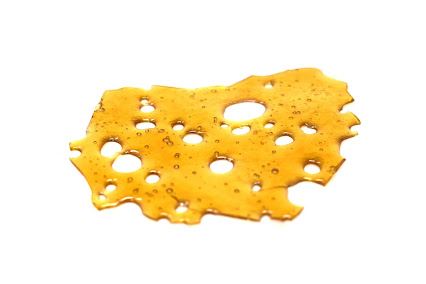Delta 9 Distillate: Everything You Need to Know
What is Delta 9 THC Distillate?
Delta-9 THC distillate is a highly concentrated form of Delta-9-tetrahydrocannabinol (THC) that has been extracted from cannabis plants and refined to remove other plant materials and impurities. The distillation process involves heating the cannabis plant material to vaporize and collect the Delta-9 THC and then purifying it through several stages of distillation to produce a concentrated, clear liquid.
Delta-9 THC distillate can be used in a variety of ways, including smoking, vaping, dabbing, or adding it to edibles or other cannabis products.
History of Delta 9 THC
Delta-9-tetrahydrocannabinol (THC) was first isolated and identified by Dr. Raphael Mechoulam and colleagues in Israel in 1964. This discovery led to the identification of the endocannabinoid system in the human body, which plays a role in regulating many physiological processes, including mood, pain sensation, appetite, and memory.
Cannabis has been used for medicinal and recreational purposes for thousands of years, with some evidence suggesting its use dates back to ancient China and India. Cannabis plants contain over 100 different cannabinoids, including Delta-9 THC, which is the primary psychoactive component responsible for the "high" associated with cannabis use.
In the United States, cannabis was widely used for medicinal purposes until it was prohibited under federal law in 1937. This led to a decrease in research into the potential medical uses of cannabis and its components, including Delta-9 THC.
However, in recent years, there has been a growing interest in the potential therapeutic benefits of Delta-9 THC and other cannabinoids. Several states in the US have legalized cannabis for medicinal and/or recreational use, and research into the potential medical uses of cannabis and its components is ongoing.
Despite its potential benefits, the use of Delta-9 THC and THC-containing products is illegal in many jurisdictions, so it is important to be aware of the laws in your area before using Delta-9 THC or other cannabis products.
How Delta 9 THC Works
Delta-9-tetrahydrocannabinol (THC) works by binding to cannabinoid receptors in the brain and other parts of the body that make up the endocannabinoid system. The endocannabinoid system is involved in regulating many physiological processes, including mood, pain sensation, appetite, and memory.
THC is similar in structure to the endocannabinoid anandamide, which is naturally produced by the body. THC binds to cannabinoid receptors in the brain and other parts of the body, activating the same pathways as anandamide and producing similar effects.
When THC binds to cannabinoid receptors in the brain, it can produce a range of effects, including euphoria, altered perception of time and space, and changes in sensory perception. THC can also affect mood, appetite, and memory, and may have therapeutic effects on pain and inflammation.
Forms of Delta 9 THC
Delta-9-tetrahydrocannabinol (THC) can be found in various forms, including:
Flower/Bud: The most traditional form of THC is the flower or bud of the cannabis plant. The dried flowers can be smoked or vaporized to produce the psychoactive effects of THC.
Concentrates: THC concentrates are highly potent forms of THC that have been extracted from the cannabis plant using various methods, including solvent-based extraction, CO2 extraction, and heat and pressure. Examples of THC concentrates include wax, shatter, and oil.
Edibles: THC can be infused into a wide range of food and beverage products, including gummies, chocolates, brownies, and drinks. When consumed orally, THC can take longer to take effect but may produce a longer-lasting and more intense high.
Tinctures: THC tinctures are liquid extracts of THC that are typically administered sublingually (under the tongue). Tinctures are easy to use and allow for precise dosing.
Topicals: THC-infused topicals are applied directly to the skin and can provide localized relief from pain, inflammation, and other symptoms without producing a psychoactive high
Benefits and Side Effects of THC
THC, or delta-9-tetrahydrocannabinol, is the psychoactive compound found in cannabis that produces the characteristic “high” associated with marijuana use. THC also has potential therapeutic benefits and side effects, which can vary depending on the dose, individual differences, and other factors.
Benefits of THC:
Pain relief: THC can be effective in relieving pain, particularly neuropathic pain, which is often difficult to treat with traditional pain medications.
Anti-inflammatory properties: THC has been found to have anti-inflammatory properties and may be effective in treating inflammation-related conditions such as arthritis.
Appetite stimulation: THC can increase appetite and may be beneficial for individuals who struggle with appetite loss due to medical conditions or treatments.
Nausea and vomiting relief: THC can be effective in reducing nausea and vomiting, particularly in patients undergoing chemotherapy.
Anxiety and depression: THC may have anxiolytic and antidepressant effects, although it can also produce anxiety and paranoia in some individuals.
Side effects of THC:
Short-term memory impairment: THC can impair short-term memory and make it more difficult to concentrate and learn new information.
Coordination and balance problems: THC can impair coordination and balance, making it more difficult to perform tasks that require fine motor skills.
Dry mouth and eyes: THC can cause dry mouth and eyes, which can be uncomfortable.
Increased heart rate: THC can increase heart rate, which may be problematic for individuals with cardiovascular disease.
Psychiatric effects: THC can produce psychiatric effects such as anxiety, paranoia, and psychosis, particularly in individuals who are predisposed to these conditions.




Comments
Post a Comment